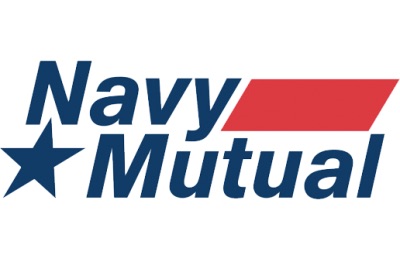Disclosure: This article is sponsored by Navy Mutual, a non-profit Veterans Service Organization (VSO).
At Navy Mutual, we are dedicated to helping veterans, service members, and their families achieve financial stability.
Sometimes, that means supporting loved ones should anything happen to our Members. Other times, it means helping our Members retire with dignity.
When it comes to planning for your retirement, annuities can be one of the most powerful tools in your arsenal. While annuities can seem complicated, they are surprisingly simple. In this article, we will cover all the essential basics that you need to know.

What Are Annuities? How Are They Different From Life Insurance?
When you purchase a life insurance policy, your premium payments are pooled with others to fund the benefits that the insurer will pay out to all beneficiaries.
With an annuity, the money you pay earns interest and is used to generate a guaranteed income payment. Annuities really are that simple: you pay a certain amount of money and you receive back a portion of that premium deposit plus interest each month for a fixed period or the lifetime of a designated individual.
There are many different types of annuities, but each has just three basic factors: how you fund the annuity, how the investment is managed, and how you receive income payments.
Funding an Annuity
There are two different payment models for annuities: a single premium or a more flexible installment premium.
A single premium annuity is funded through one lump-sum payment. Often this lump sum comes from liquidating other assets such as a 401k, IRA, home equity, or investment portfolio.
An installment premium annuity is funded over time through either scheduled or unscheduled premium contributions and is a great option if you are still working but want to diversify your retirement assets.
Deferred annuities are often funded in an installment premium model but could be used to safely grow a lump sum investment as well. Immediate annuities are always funded with a lump-sum deposit.
Managing the Investment
While annuities are not investments in the traditional sense, your premium deposits will be invested by the insurer in order to increase the value of the annuity. There are two models for investing the principal.
The first model is a fixed annuity. In a fixed annuity, the principal (sum of premium deposits) is invested primarily in bonds and other fixed return investments. This allows for a set interest rate and guarantees that the principal will not lose value if contract terms are completed. While fixed annuities may grow more slowly than other investment models, they provide valuable stability and peace-of-mind for your retirement savings.
The second model is a variable annuity, which involves greater risk but the potential for a higher reward. With a variable annuity, you choose from a set of options where your funds are invested. If the investments perform well, variable annuities can grow more quickly than a fixed annuity; however, there is also a risk that the principal could lose value. Variable annuities often have larger fee structures than many lower-risk fixed options.
Receiving Income
How you receive the guaranteed income is the final factor that determines the type of annuity that may work best for you; immediate or deferred.
Immediate annuities will begin distributing income payments within 1 month – 13 months of purchase. Immediate annuities are often funded with a single premium contribution and are typically used as a tool to spread out income taxation or reduce the risk of outliving assets.
For example, you might roll all or a portion of your traditional retirement savings into a qualified immediate annuity when you retire to ensure that the savings last for the entire duration of what could be, very long and happy retirement years. In that way, immediate annuities are similar to a pension’s defined benefit or social security income payments.
Deferred annuities grow the principal deposit(s) in a tax-advantaged way until you decide to either cash out in lump sum or initiate an annuitized income distribution. Income payments are generally greater the longer you wait to distribute due to a longer interest accumulation period and less life expectancy ahead. That means that you can increase your payments by initiating distribution later or can opt to start receiving lower payments in exchange for receiving a lower amount of guaranteed income.
If you don’t have a need for more taxable income today, deferral is most likely the right choice for you; however, interest comes out first if distributions are taken from a deferred contract. If more favorable tax treatment is desired, annuitizing your accumulation amount into a guaranteed income payment for a fixed period or lifetime income would result in a portion of each income payment to be returned tax-free.
Learn More:
Visit the Navy Mutual Website to Learn More



About the comments on this site:
These responses are not provided or commissioned by the bank advertiser. Responses have not been reviewed, approved or otherwise endorsed by the bank advertiser. It is not the bank advertiser’s responsibility to ensure all posts and/or questions are answered.